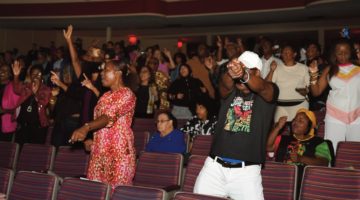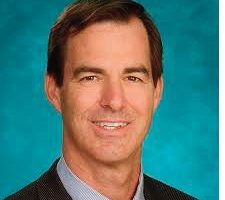I recently returned from giving the keynote address at the 1st International Conference on Deltas and Rivers in Africa with the theme: From Vulnerability to Sustainability. The conference was in response to a call for an international year of Deltas. However as I pointed out in my address, at that 2014 International Conference on World Deltas held in Europe initiating the year, Africans were very minimally participating.
Putting an African conference together was no easy task. Initiated by the Center for Sustainable Development at the University of Port Harcourt, four Universities in the Niger River Delta region of Nigeria came together as organizers. Funding was obtained from Nigerian Government agencies and the Nigerian private sector and this money was topped off with a grant from the Mac Arthur foundation to provide travel funds and commissioned papers on major African deltas. Unfortunately difficulties with travel arrangements kept some invitees from making the conference. Nevertheless the attendance was significant and a number of key deltas such as the Nile and the Senegal were represented by senior scientists. In addition to designing the conference to facilitate exchanges between different deltas it also facilitated exchanges among disciplines and a start was made between scientists and managers. The presence of a number of Nigerian students enabled them to make valuable contacts with their peers and with current practitioners. The conference itself was valuable but the critical issue is, will this be just a great conference or will be it be a turning point for the environment in Africa?
Part of my challenge as a keynoter was to challenge the conferees to take charge and to work collaboratively across all barriers to bring to policy makers the information needed for sustainable development in these environmentally sensitive, economically powerful delta areas which, in addition to all of the stressors they face, are flashpoints for the impact of climate change. All too often African scientists are isolated and under-supported and funding often goes first to outside consultants. The legacy of colonialism not only has separated scientists between countries, but also within countries as the universities and research institutes are often minimally connected and not always well linked into the decision process for policy and management decisions.
In my address I challenged the body to move beyond just having a successful conference exchanging information and developing new ideas to being a game changer for African science and environment. At the final session of the Conference an African deltas and rivers network was initiated. A structure was established and the first charge was to maintain the web page established for the conference as a source of regularly posted information on what was happening to the deltas and rivers environments around the continent. The need for more effective use of satellite information was recognized and Egypt volunteered to help their colleagues move ahead in this area. Planning is underway to make this network an essential entity for those working on African river deltas.
In my closing remarks at the end of the conference I re-iterated my challenge in the keynote address to be a game changer. I described a game changer to be a situation as in a soccer game when the score is tied and one team is moving towards the other’s goal when an opposing player steals the ball and heads towards the opposite goal. However I noted that while the steal maybe the point where the game turned around in order to make the game change complete the player has to get all the way downfield and see the ball in the net. At this end of the Conference we can be likened to that player heading towards the goal, but success will only come when the attendees achieve a functioning network that provides the information needed to improve the lives of the millions of people dependent on Africa’s rivers deltas. I am optimistic that this will be the case as this is Pan Africanism taking place from the ground up.
Brad Brown is first vice president of the Miami-Dade NAACP. He is a retired National Oceanic and Atmospheric Administration scientist. He continues to work as a consultant on African coastal and marine projects and scientific capacity development. He may be reached at jabaribrad@aol.com











No Comment